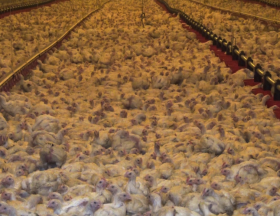Three Technion projects will be tested on board the International Space Station, as part of the "Rakia Mission" of the Ramon Foundation and the Israeli Ministry of Science and Technology.
Eytan Stibbe, one of the founders of the Ramon Foundation, is scheduled to fly to the International Space Station (ISS) in early 2022, as part of the Axiom Space Ax-1 mission, subject to NASA and Axiom approvals – the first mission to the Space Station entirely manned by private astronauts. He will become the second Israeli in space, after Ilan Ramon, who died in the Space Shuttle Columbia accident.
Stibbe is expected to spend 200 hours on the International Space Station. He will perform several experiments, providing an opportunity for Israeli researchers and entrepreneurs to examine the feasibility and viability of certain projects, and to advance space research and equipment. The experiments were recently selected by a science and technology committee appointed by the Ramon Foundation. This space mission overcomes one of the main barriers to entry into the aerospace industry, namely the high cost of astronaut flight hours to conduct research.
Three Technion projects have been selected for testing by Stibbe on the International Space Station:
Professor Moran Bercovici’s laboratory at the Faculty of Mechanical Engineering plans to demonstrate the first ever fabrication of optical components in space. The Fluidic Telescope Experiment (FLUTE) was designed and built by Valeri Frumkin, Mor Elgarisi and Omer Luria, under the direction of Professor Bercovici, in collaboration with a team of NASA researchers led by Edward Balaban. The experiment on the ISS will investigate the possibility of exploiting the microgravity environment to produce high-quality lenses by shaping liquids into the desired form and then solidifying them. A successful demonstration on the ISS will pave the way for the manufacture of advanced optical components in space, including the creation of very large space telescopes, overcoming current launch constraints.
The teams of Professor Ehud Behar and Professor Shlomit Tarem of the Department of Physics, led by doctoral student Roi Rahin, are developing an instrument to locate gamma-ray bursts – a device they have named GALI. Gamma-ray bursts are produced by stars exploding in supernovas, as well as by the collision of neutron stars. These same events also produce gravitational waves, which brings the study of these two phenomena closer together. The main challenge facing scientists is to be able to locate the location in the sky where the gamma-ray burst originates, which would then allow astronomers around the world to point their telescopes at the event. GALI improves on previous detectors by using much smaller sensors than those used previously, arranged in an innovative 3D array. It is this unique arrangement that, while much smaller than previous gamma-ray burst detectors, GALI promises to be more accurate in its steering capabilities.
Finally, the Aerospace Plasma Lab, led by Dr. Igal Kronhaus of the School of Aerospace Engineering, is developing a tiny engine for Cube Sats – miniature satellites made of 10 cm × 10 cm × 10 cm cubic modules. Their engine, called the Inline-Screw-Feeding Vacuum-Arc-Thruster, and its fuel supply are no bigger than a human finger, but can provide enough impetus to sustain a flight of satellites in formation for months or more. The fuel, a small titanium wire, can be held safely in the hand. The engine will be placed outside the International Space Station and will operate in high vacuum and extreme temperatures.
Two other of the selected projects are from the Technion: one is from Aleph Farms, a start-up specialized in cultured meat. Aleph Farms’ technology was developed based on the research of Professor Shulamit Levenberg at the Technion’s Faculty of Biomedical Engineering. The other is OncoHost – a start-up specializing in personalized cancer treatment, based on the research of Professor Yuval Shaked at the Technion’s Rappaport Faculty of Medicine.
All projects must now undergo a rigorous design review process in order to be ready for launch.











Réagissez à cet article